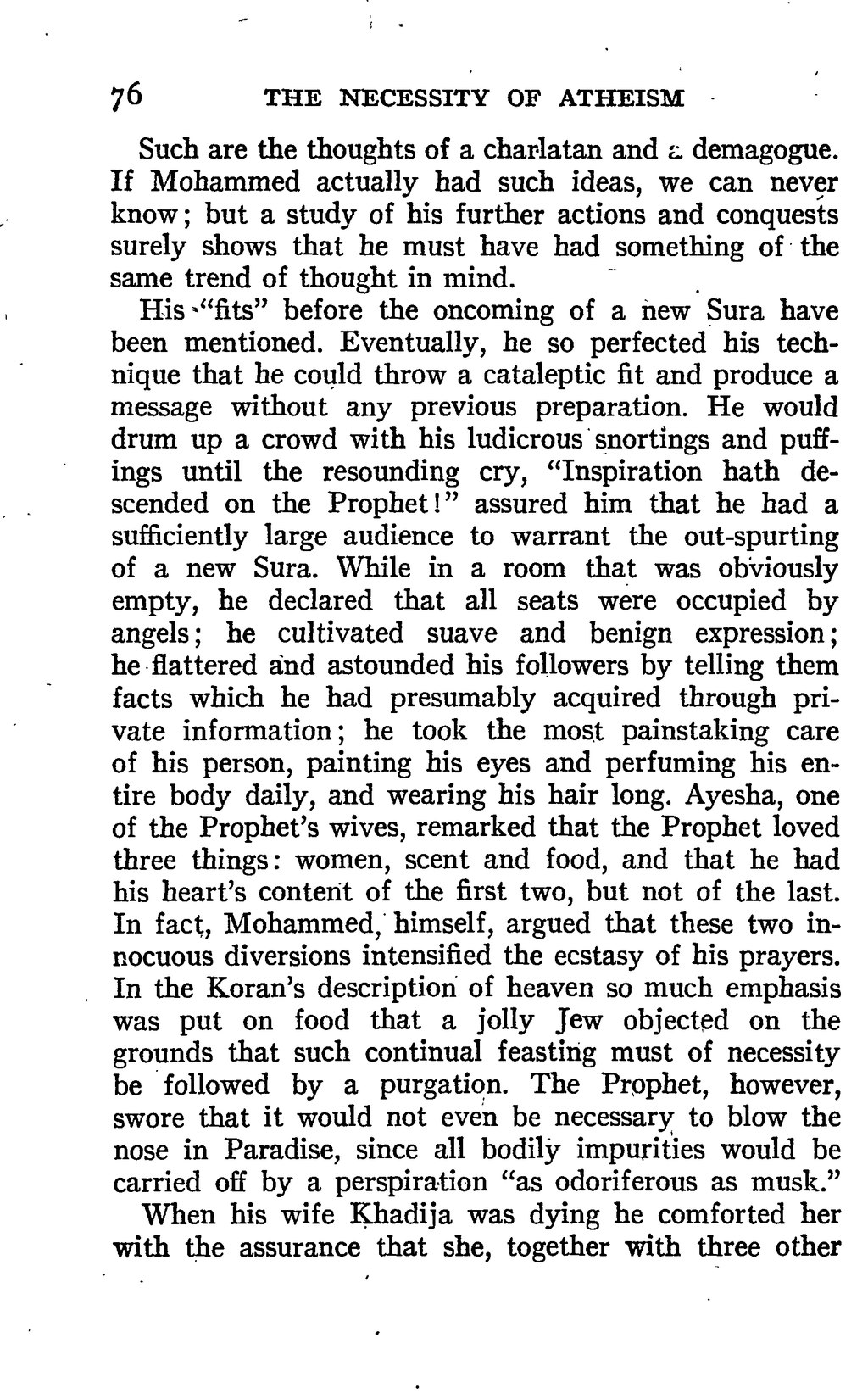Such are the thoughts of a charlatan and a demagogue. If Mohammed actually had such ideas, we can never know; but a study of his further actions and conquests surely shows that he must have had something of the same trend of thought in mind.
His "fits" before the oncoming of a new Sura have been mentioned. Eventually, he so perfected his technique that he could throw a cataleptic fit and produce a message without any previous preparation. He would drum up a crowd with his ludicrous snortings and puffings until the resounding cry, "Inspiration hath descended on the Prophet!" assured him that he had a sufficiently large audience to warrant the out-spurting of a new Sura. While in a room that was obviously empty, he declared that all seats were occupied by angels; he cultivated suave and benign expression; he flattered and astounded his followers by telling them facts which he had presumably acquired through private information; he took the most painstaking care of his person, painting his eyes and perfuming his entire body daily, and wearing his hair long. Ayesha, one of the Prophet's wives, remarked that the Prophet loved three things: women, scent and food, and that he had his heart's content of the first two, but not of the last. In fact, Mohammed, himself, argued that these two innocuous diversions intensified the ecstasy of his prayers. In the Koran's description of heaven so much emphasis was put on food that a jolly Jew objected on the grounds that such continual feasting must of necessity be followed by a purgation. The Prophet, however, swore that it would not even be necessary to blow the nose in Paradise, since all bodily impurities would be carried off by a perspiration "as odoriferous as musk."
When his wife Khadija was dying he comforted her with the assurance that she, together with three other
